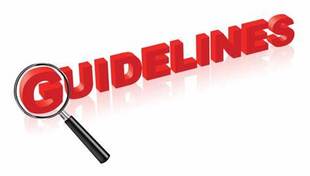 Have you submitted your book to agents or publishers and had it rejected? Have you ever asked yourself why your masterpiece was rejected? After all, you have read far worse books than yours, so why wasn’t your much better book accepted? Have you ever thought that it might be because you didn’t adhere to the submission guidelines? As publishers we receive a lot of submissions and one of the things that puzzles us the most is how someone who can write a 100,000 word novel can’t read a simple set of instructions.  You may wonder why adhering to the submission guidelines is so important. After all, it has nothing to do with the quality of your work. Your masterpiece will still be a masterpiece, even if you didn’t double space it, as the submission guidelines asked you to. We’ll answer that in this blog. Our submission guidelines are published on our “Contacts” page of this website. They are longer than they are for some agents or publishers. That’s because we’re trying to be helpful, so we tell authors in advance why we might not accept their masterpiece. That gives them the opportunity to take a look at what they have written and decide what sort of a chance they have of being accepted if they submit their work to us. We may not actually be the right publisher for them, so why waste everyone’s time?  But even if we are the right publisher, are they the right author? We have no way of knowing without setting them a little examination – but here’s the trick – we also provide the answers to the exam questions. And that makes it much harder for authors to fail. So why do so many authors send us into apoplectic fits of rage by not reading the answers? OK, I’m exaggerating for comic effect, but it is very frustrating when you open a submission and find, not the 10,000 words that were asked for in the guidelines, but the whole (expletive deleted) manuscript. And it's double line spaced when we asked for something else. I have actually emailed an author and asked him why he didn’t read our guidelines. He replied to say that he did read them. So I then asked him why, having read the guidelines, he had decided to ignore them. He replied that he didn’t think we were serious and they were just to discourage authors from making submissions. Yes, that’s right, we spend hours making things up just so we don’t have to read submissions. That’s how we stay in business, by not having any new material to publish. (sarcasm).  I didn’t use the word “examination” above by accident, by the way. So why did I use it? When you submit a book to an agent or publisher, it ceases to be “your book”. The act of submission turns your work into a collaborative project. Your name will still be the one on the cover of the book, but it won’t get to the bookshops without a lot of teamwork between you and the publisher. So, when you submit the book, the agent or publisher wants to know if you are the sort of person with whom it is going to be easy to collaborate. Trust us on this, but no author ever submits a book that is ready to go straight to press. They all require some degree of work to turn them from what they are into something that the readers will want to buy. The only difference between submissions by different authors is the amount of work needed to get from A to B.  The greatest authors ever to put words onto paper have gone through this process before you, so don’t think you are some sort of special case or genius who can go straight from submission to publication without stopping to do a few re-writes along the way. That’s where the publisher has to start spending money – without knowing if they will ever get any of it back. A publisher will pay an editor to work with you to make your book the best it can be, and that editor will earn between £20k and £40k per year. Freelance editors start at around £25 per hour, charging up to £54 per hour if more specialist services are needed. (comparable rates apply in other countries). That may well be more money than you, the author, will receive in royalties. So, the publisher (and the agent who will try to find you a publisher) wants to know if you are going to work with that editor, or work against them. Is it worth them spending £5k to £10k of an editor’s wages working on your book with you if you are going to ignore everything the editor suggests? "If you can’t be bothered to read the submission guidelines, are you really going to read the editor’s notes?"  Someone, I don’t know who, once said “You only get one chance to make a first impression.” Your submission is your only chance to make that first impression. What the agent or publisher sees when they open up your manuscript is when that first impression is made. If it is the right length and formatted the way the agent or publisher has requested it, they are going to start to think of the author in a positive way. If they asked for a synopsis but you didn’t provide one, then you probably didn’t read the guidelines, or you decided they didn’t apply to you. If they asked for a biography but you didn’t include one, they will wonder why you didn’t. If you haven’t done those things, the negative thoughts will start, which means the author’s work has to be so much better than the average before the agent or publisher starts to move across to having more positive thoughts.  So, we have devised an additional test for our authors. We don’t insist that authors use our formatting guidelines, we just suggest that if they want to impress us, they should use them (item 6 if you decide to read them for yourself). If the author responds to our suggestions, they get off to a good start with us. If they just submit the MS formatted the way they wrote it, then the start isn’t going to be such a good one. So, for your own good, if you are going to submit your work to an agent or publisher, please read and follow the submission guidelines because first impressions count for so much. After that, your writing talent will do the talking for you. Don’t get me wrong. The agent or publisher won’t make a final decision based on whether you have used the right line spacing or the right font. If the story is good enough it could be written on a brown paper bag with a blunt crayon and it will still be accepted. But if you want the agent or publisher to be on your side from the moment they receive your submission, you have to do what is necessary to get them there, by following the submission guidelines. And if you think following submission guidelines is for losers – good luck with your career in pizza deliveries. If you have enjoyed this blog, or found it informative and you don't want to miss future editions, just click the button to sign up for our newsletter.
0 Comments
Leave a Reply. |
AuthorThis blog is compiled and curated by the Selfishgenie publishing team. Archives
June 2025
|
 RSS Feed
RSS Feed